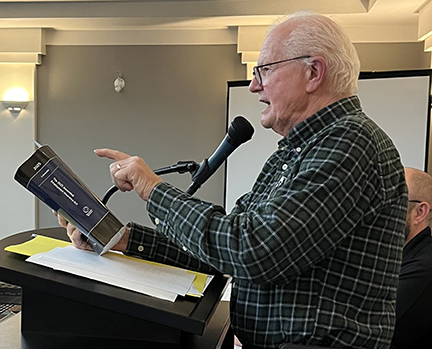July 2, 2025 marked the official closing of the merger between global agribusiness giants Bunge and Viterra, a development met with deep apprehension and disappointment by the Grain and General Services Union (GSU). Despite the federal government’s assertion that the decision is “firmly rooted in Canada’s public interest,” GSU, representing Viterra workers, believes this consolidation poses a grave threat to Canadian jobs, farmers, and the long-term health of Canada’s agriculture industry.
For months, industry groups, unions, and farmers across the Prairies have voiced serious concerns about the proposed Bunge-Viterra merger. These issues, ranging from job security to market competition and farmer income, were widely highlighted. Yet, the federal government chose to approve the merger with conditions that many, including GSU, deem woefully inadequate.
A Five-Year Band-Aid on a Long-Term Problem
One of the most immediate and pressing concerns for GSU members is the precarious nature of their job security. The Canadian federal government’s approval conditions only guarantee the retention of the Viterra head office in Regina for a mere five years. This short-term commitment offers little comfort to workers who are now facing profound uncertainty and anxiety about their futures.
“The lack of stronger protections for Canadian jobs is deeply disappointing, especially given the absence of vocal support from our provincial government and federal political leaders to address this concern,” stated GSU General Secretary Steve Torgerson. “I would hope it doesn’t take a lobbyist to convince our provincial leaders of the importance of keeping good-paying jobs in our province. They should not only know it, but be fighting relentlessly to protect them.”
GSU views this five-year window as a clear indication of how little consideration has been given to the livelihoods of workers and the communities they call home. This merger will create a company likely to last much longer than five years, yet the commitment to jobs is incredibly short-sighted.
Farmers Face Income Losses and Reduced Competition
Beyond the direct impact on jobs, this merger casts a long shadow over prairie farmers. An economic analysis, conducted by four prairie farm organizations, concluded that the merger will result in a substantial loss of income for farmers, estimated at a staggering $770 million per year. This reduction in farm income will undoubtedly create a ripple effect throughout rural communities, impacting the overall economic well-being of everyone on the Prairies. The promised investment of at least $520 million by Bunge in Canada over the next five years pales in comparison to the projected annual losses farmers will likely incur.
Furthermore, the merger is likely to usher in reduced competition across the agricultural landscape. The fate of the Viterra canola crush plant near Regina, for instance, now appears all but sealed, signaling a decline in processing capacity and competitive options for canola growers. The Canadian government’s conditions, which include Bunge selling six grain elevators in Western Canada and implementing controls on Bunge’s minority ownership in G3, are seen by many as a token gesture that fails to genuinely address the significant market concentration this merger creates. Reports have highlighted that a merged Bunge-Viterra entity would have a stake in over 40% of export capacity at the Port of Vancouver and control a substantial portion of Canada’s canola crushing capacity, directly impacting prices farmers receive for their produce.
GSU’s Unwavering Commitment to Workers and Western Canadian Agriculture
“GSU members have faced similar challenges in the past, and once again, the union finds itself advocating for the fundamental rights and security of its members against a backdrop of corporate consolidation,” Torgerson said. “The concerns of working people must take priority, and all levels of government have a responsibility to serve their constituents and communities.”
“GSU will continue to keep a close eye on this merger to make sure our members are protected and their important work in agriculture is recognized and respected. Once again, it looks like farmers and communities will be the ones left behind. But it’s not too late—our Provincial and Federal governments can still step up and say clearly that the Regina Head Office and its good jobs must stay in Canada.”
GSU remains steadfast in its commitment to representing its members and the interests of all agricultural workers in Western Canada. We will continue to fight for good jobs, fair competition, and a prosperous future for our rural communities.







 EI Guidance: Eligibility, special benefits, quitting/dismissal impacts, EI while in school.
EI Guidance: Eligibility, special benefits, quitting/dismissal impacts, EI while in school.
